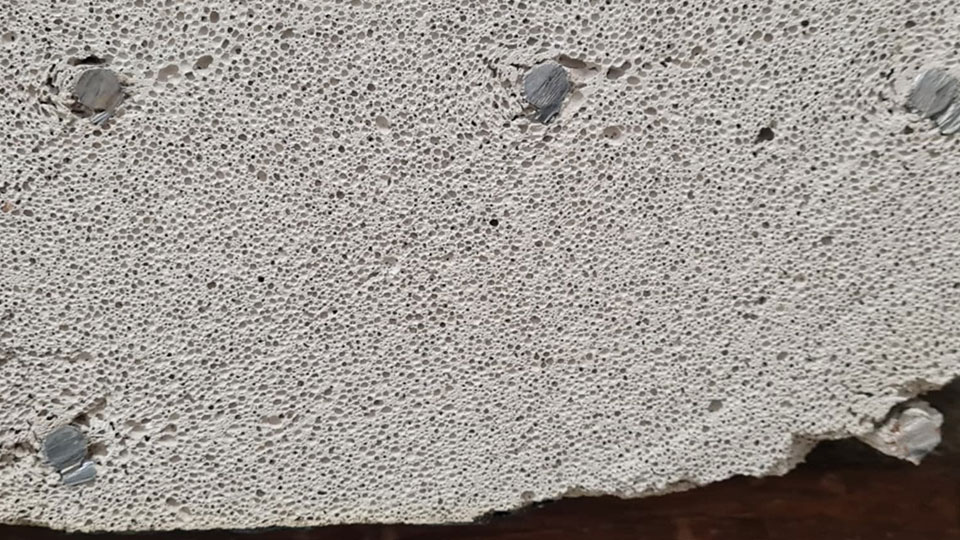This has led to thousands of children being taught remotely as the new school term begins - and there is the potential for further disruption with more buildings potentially being ordered to close. Research from Loughborough University - and used by Government to inform decision making - highlighted safety concerns associated with using RAAC in school buildings across the UK, and in other government buildings including airports and hospitals.
Why is RAAC a safety concern?
RAAC is an aerated lightweight cementitious material with no coarse aggregate; the material properties and structural behaviour therefore differs significantly from ‘traditional’ reinforced concrete. Research led by Professor Chris Goodier and his team at Loughborough University's School of Architecture, Building and Civil Engineering found that RAAC from the 1950s, 60s and 70s is the main safety concern, especially if it has not been adequately maintained.
See our expert explainer with Professor Chris Goodier for more information.
Policy impact
Loughborough University research and expertise has been used by the Government in order to identify the risks of RAAC and, therefore, has been critical to the decisions being made about school closures and school safety. The research will have a significant positive impact if it means that further at-risk buildings are identified and remedial action taken to improve the safety of school pupils and staff. Professor Goodier’s research into RAAC also led to the Government’s decision to accelerate building work on five new hospital sites after the use of RAAC meant that five hospitals would not be safe to operate beyond 2030 – a great example of Loughborough University research informing key policy decisions.
In June, the Government announced a government-wide inquiry into the use of crumbling concrete in public buildings following fears that buildings such as offices and leisure centres might be at risk of collapse. Each department was tasked with identifying buildings at risk, and Professor Goodier has provided advice to several of these throughout the process, including the Department for Education, Ministry of Defence, Cabinet Office and Ministry of Justice. He has also held discussions with the Government Chief Property Officer.
Once the news of the school closures was announced, the Policy Unit connected our experts with relevant senior civil servants, influential MPs including the Shadow Education Secretary, Bridget Phillipson, and Select Committees including the Public Accounts Committee and the Education Select Committee. Furthermore, Professor Goodier was name-checked by the Education Secretary, Gillian Keegan during her Statement to the House of Commons.
In a timely session, Professor Goodier is appearing before the UK Parliament’s Parental Participation All-Party Parliamentary Group on Monday 11 September to discuss the condition of school buildings in the UK. Whilst this was arranged before the news about schools broke, it will no doubt receive more attention now – another example of Loughborough University research helping inform political debate.
Press coverage
Professor Goodier has been the go-to expert for media outlets who have been covering the story. His explanatory video appeared on coverage in the Daily Mail Online and ITV News. Two of the country’s largest media outlets also covered Loughborough University’s leading research on the issue online in Sky News and BBC News. For television, he appeared on BBC’s flagship late night news television programme, Newsnight, which attracts an average of over 500,000 viewers as well as appearing on BBC Breakfast as a studio guest. There was also local coverage on our research in Leicestershire Live, after a local school was forced to close.
